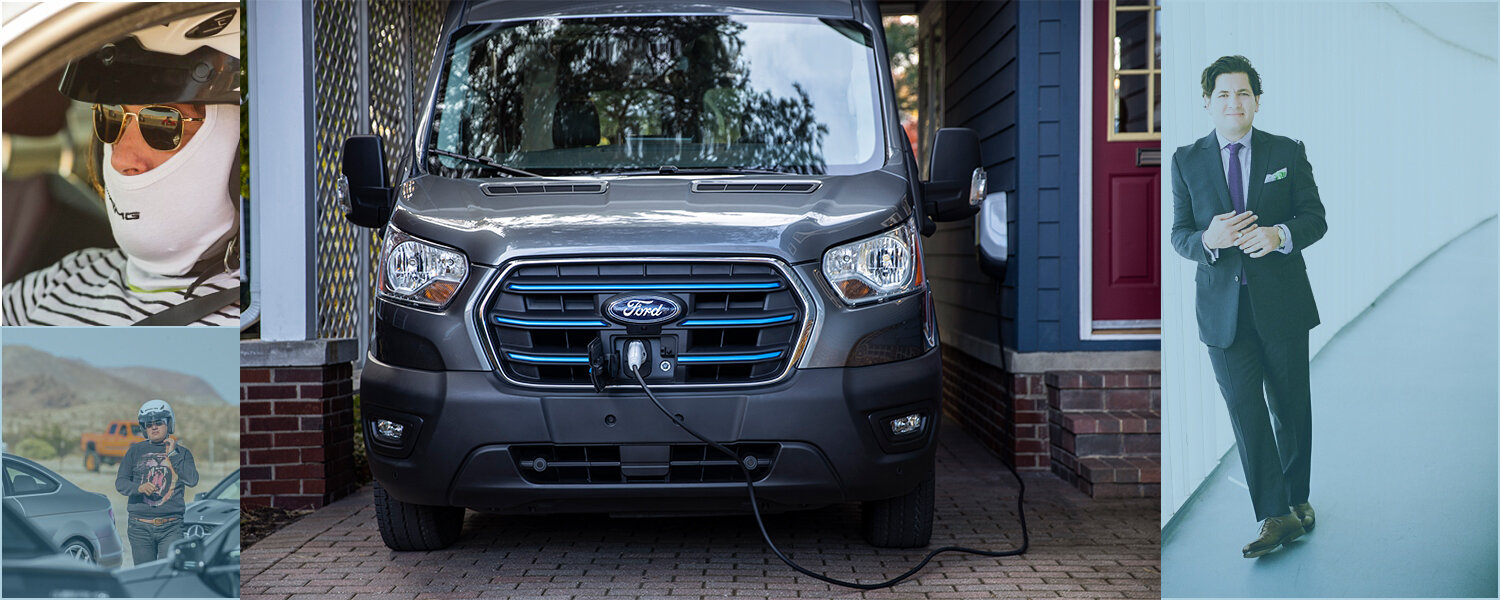Jon Alain Guzik on the future of cargo vans and work trucks
What will the future of the cargo vans and work trucks bring?
By: Tom Hindle
An interesting topic at the moment is the switch from gas to electric in cargo vans and work trucks, what’s going on in that space?
EV powered Cargo Vans and Work trucks are going to be a game changer. Honestly, if we see a sub-$45,000 cargo van, with a longer range battery you can fit to your company's needs, that is going to be massive. Same with pickup trucks in the same price range, it’s going to be huge.
What's going to change the dynamics for EVs is when work trucks, pickup trucks, cargo vans get electrified and that's happening sooner rather than later.
Ford announced that they're coming out with their 2022 E-Transit, which is the electric version of the Ford Transit van. What's interesting is Ford surveyed a lot of their Transit owners and found that most only needed about 74 or so miles a day for their trips. So, I would hazard to guess, to get to market sooner and to keep costs down, the E-Transit comes with a 126 mile range at launch.
That seems mighty low, doesn’t it?
Not really, think of it like this. Work trucks usually live at depots at night. So charging is super easy and they happen at off-peak times. Also, maintenance is a lot less expensive, because there are less parts on the vans, thus, less things to fix.
Who else is working on Vans?
GM is working on a cargo van, along with a whole slew of companies that are making EV conversion kits packs for gas powered cargo vans. Rivian is testing a Cargo van with Amazon right now.
The minute you start dropping gas and diesel power in these trucks and putting in electric powertrains, you're going to have quieter vans with less emissions and soon these battery packs and drivetrains will get less expensive to produce - eventually less than gasoline powered drive trains - you’re looking at a case of why would manufacturers make them unless the work application really, really, really needed something that justified a diesel engine.
What about pickup trucks?
For pickup trucks, just like vans, EV really is the future, because most of these vehicles don't live on the highway, they are out in traffic most of the time, where they can regenerate power. And if they do have a lot of highway miles, it’s usually going back and forth between the shop and worksite, where you can recharge if needed. If they have DC fast charging where they are getting lunch, they can get from 20-80% while they eat. It's really interesting what's going on. I like the way the Rivian pickup truck looks, but it’s going to be a luxury truck, because it will probably cost about six figures.
But the minute Ford has an EV F-150 or Ranger, or Chevrolet an EV Colorado or Silverado or an EV Ram truck, that to me is gonna be completely insane. These trucks won’t be priced or built to be like Tesla's Cybertruck, which is this a super-fast, futuristic looking pickup truck. Most people don't want that.
They want to be able to haul as much as they can, with the longest range possible and the lowest cost of operating the asset, that’s the mindset of a fleet manager.
The minute the OEM’s stick the landings on these trucks, it’s going to rock the world. The first generation of these trucks are going to be interesting, but, to me, think five, ten, twenty years down the road, what are commercial fleets going to look like?
I think that is going to be completely fascinating to see where we are right now in 2021 versus where we are in 2031 and 2041.
One thing that you're seeing at the moment are government incentives that might level the playing field between gas and electric. Do you have any idea how that would affect this industry?
It's complicated. Your total cost of ownership is different. The way you do the math on total cost of ownership for a commercial vehicle and commercial fleets is different than passenger fleets.
So it's the TCO of maintenance on the fleets, It's the reliability of the vehicle. It's like the charging infrastructure. So, if it costs more to acquire a vehicle, but it costs less to operate the vehicle, because you have to think you're not paying for gas or diesel, and you're realizing a pretty big savings there, that’s a win for EVs. You can probably charge the vehicles off peak during off peak time, which adds up in the savings department. Also, how much is maintenance of EV fleets versus gas and diesel fleets? That’s something to think about and the math isn’t 100% there yet.
The government will do as much as they can but even without their help, the cat’s out of the bag. For a personal work truck, if it's above 6,000 lbs, you can write off up to $25,000, as long as you can backup that you're not using it for personal use. So that's a huge thing, especially if you can write off 100% of it immediately. Depreciation schedules are going to change, all that's going to change over time.
But even without government intervention, EVs are going to be a lower total cost of ownership than it will be for a gas or diesel powered truck or van someday very, very soon.
Borrow is an electric vehicle subscription company with one goal: to make driving an EV as simple and accessible as possible. Borrow is the only electric vehicle subscription service of its kind with a goal of reducing greenhouse gas emissions and decarbonizing the everyday drive.

